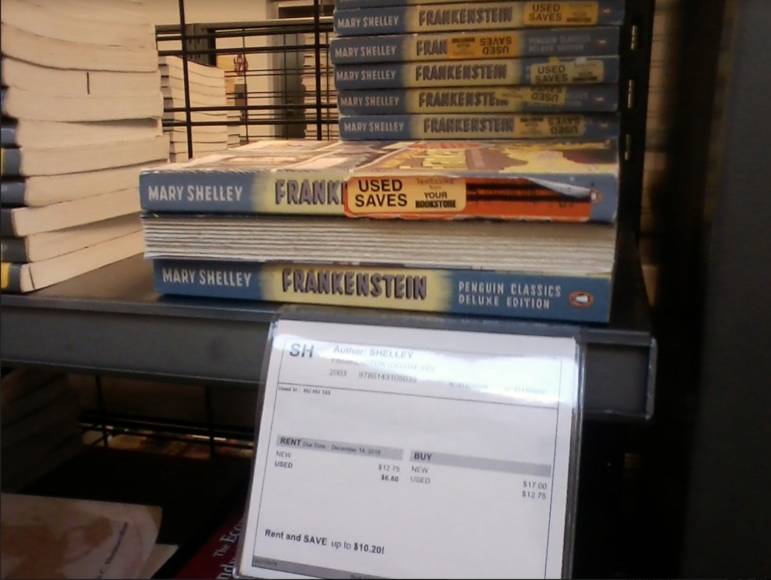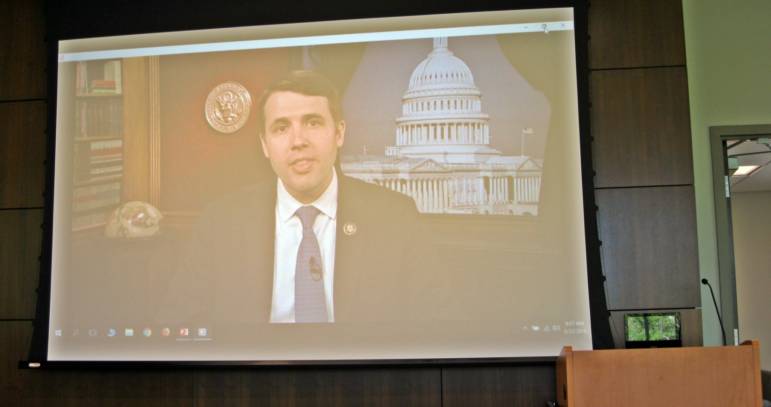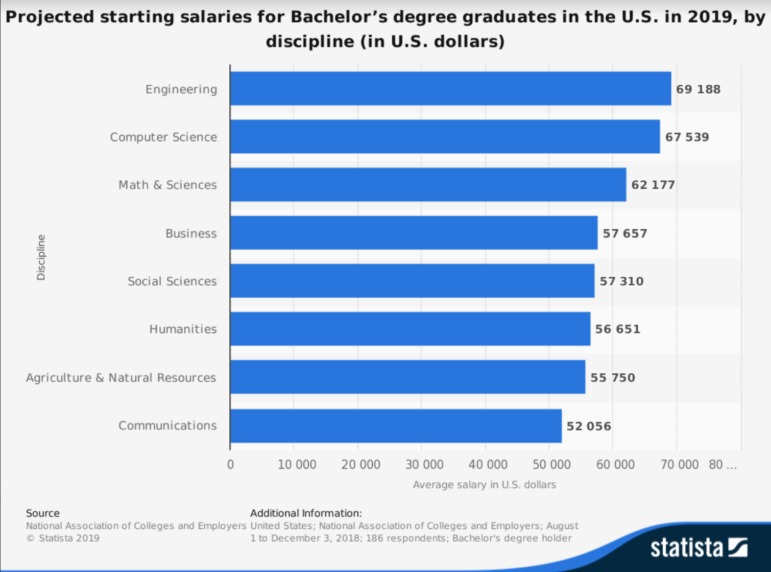
MANCHESTER, NH — It would take a STEM Kid to figure out how to open graves, steal body parts, assemble them into a complete body, and bring them to life, but only a Humanities Kid would understand who the real monster is in Mary Shelly’s book Frankenstein; or the Modern Prometheus.
(Hint: The monster is Dr. Victor Frankenstein, the former STEM Kid who robbed graves, stitched up corpses, and brought his creature to life just because he could.)
The study of humanities is where ethics and conscience come from, or such was the sentiment at a pair of events organized earlier this week by New Hampshire Humanities, a 40-some year old nonprofit dedicated to promoting “learning, reflection, and civil conversation in the Granite State.”

The guest of honor was Jon Parrish Peede, poet and Trump appointee, who currently heads up the National Endowment for the Humanities (NEH) in Washington, D.C. The NEH is a major funder of NH Humanities and its programs. (Fair warning, the Virginia Quarterly Review rejected two of my short stories when Peede ran the publication from 2011-2016. I don’t hold it against him, exactly.)
The academic disciplines included under the humanities generally include modern languages, classical languages, linguistics, literature, history, jurisprudence, philosophy, archaeology, comparative religion, ethics, and history, criticism and theory of the arts. Peede and others at the first event of the day, a roundtable discussion among NH academics, defined the humanities a bit more loosely.

“[Humanities is the study of] how humans think and how humans create,” said Dennis Britton, Ph.D., associate professor of English at UNH. “How they think about themselves, how they think about the world. How they create themselves and how they create their worlds.”
“[Humanites are] the things that feed us beyond food,” said Gary Bouchard, Ph.D., professor at Saint Anselm College and director of the Gregory J. Grappone Humanities Institute at Saint As, in his introduction of Anthony Poore, executive director of NH Humanities. “Anthony is determined to keep us fed.”
Britton said the humanities allow people to track how we got here. “The way we think today has a very long history.”
But whatever their definition, event participants agreed the study of the humanities is in jeopardy. President Trump hired Peede with the caveat that it was his intention to shut down the NEH and its sister organization, the National Endowment for the Arts. Enrollment in humanities programs at the college level is down, particularly since the 2008 recession. Even the Common Core takes a bite; the standards suggest that students should be reading 70 percent nonfiction, “using complex texts and their academic language,” by their senior year.
So much for literature.
The roundtable — which also included Tricia Peone, Ph.D, program manager at NH Humanities, Marcia Blaine, Ph.D, history professor at Plymouth State, and Barbara Will, Ph.D., professor of English and Dean of Arts and Humanities at Dartmouth — divided the issue into “academic humanities” and “public humanities.”
The academic humanities took a hit in the 2008 recession, Britton and other panelists said. Students started opting for college programs they believed would lead to a well-paying job instead of following their curiosity. In 2013, the most popular undergraduate major was business, with 26 percent of all students heading that way. Only, 8.6 percent went for the humanities.
Statistical Slideshow
Meanwhile, projected starting salaries for business-program graduates in 2019 average $57,657 while the projected salaries of humanities grads average only a little less: $56,651. (In 2017, Pete Ross, writing for the New York Observer — a publication that endorsed Trump in 2016 while being owned by Trump’s son-in-law, Jared Kushner, opined that employers would be crazy to hire humanities grads, because folks from the humanities schools are the ones most likely to raise a fuss if they see their employers doing something unjust or prejudiced. See the above note on Frankenstein.)
Above and beyond the academic sphere, are the so-called public humanities — what you, me, and the other Average Joes and Joannes are talking about in our day-to-day lives.
“If the humanities only live in the classroom, among students, we’re in trouble,” Peede said.

Academics, like the ones in NH Humanities roundtable, tend to write to impress other academics and to gain promotion and tenure. As such, their work is often unapproachable, if not unreadable, to the layperson. NH Humanities puts a lot of its work into the so-called public humanities, making them accessible by running book-discussion programs, a portable lecture series called “Humanities to Go,” and a series of roundtables held in bars and pubs called “Ideas on Tap.” (The next Ideas on Tap is set for 5:30-7:30 p.m Tuesday, June 4 at the Strawberry Banke Visitors Center in Portsmouth. Title of the free event, “Mind the Gap: The Impact of Income Inequality on Democracy.”)

The roundtable was followed by a luncheon at Saint Anselm’s Institute of Politics. Congressman Chris Pappas recorded a video greeting for the roundtable, and Congressman Ann Kuster recorded one for the lunch. A spokesperson read a letter of greeting jointly penned by Sens. Maggie Hassan and Jeanne Shaheen. I attended both events, and Kuster was the only one I observed talking about the economic benefits of an expression of public humanities, such as putting a bookstore in the Queen City’s downtown, giving the area a taste of “the things that feed us beyond food.”
Last year, New Hampshire Humanities offered 549 free programs to the public, reaching more than 174,288 state residents.

Rob Greene has a bachelor’s degree in political science and an MFA in creative writing. He’s definitely a Humanities Kid.










